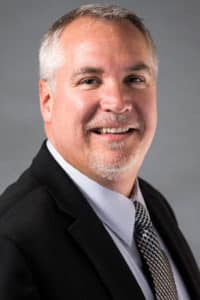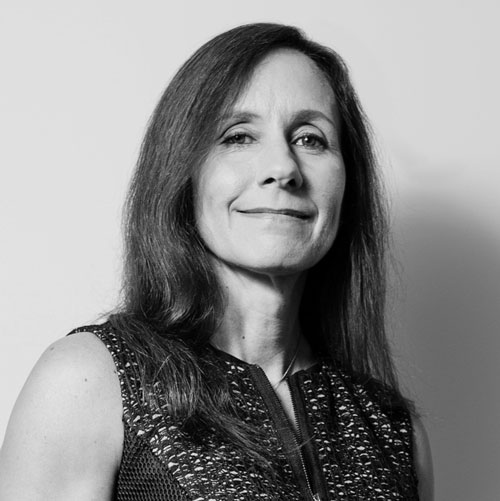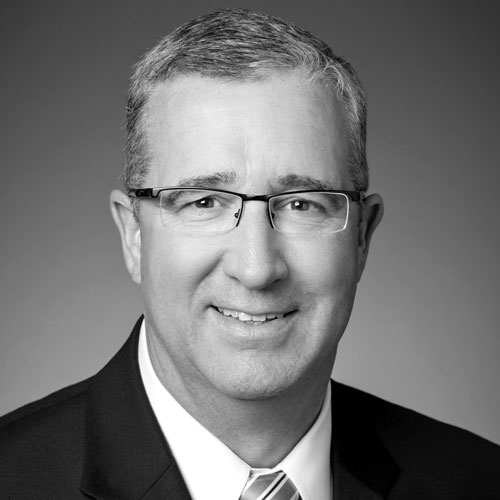It took an unfortunate amount of time for the tragedy of the opioid epidemic, which accounted for about three-quarters of the sixty-four thousand deaths from drug overdoses in 2016, to reach widespread attention in the United States. But while public health officials and private care providers searched for answers, RiverMend Health of Atlanta already had several to offer.
The provider of scientifically driven behavioral health services helps patients who suffer from alcohol and drug dependency, eating disorders, obesity, dual disorders, and chronic pain to begin recovery. The approach is decidedly medical, in partnership with university and hospital affiliations. And yet, no private care provider can exist without a solid business development plan. That’s where Frank
Severino comes in.

As vice president of business development, Severino is charged with forming referral relationships that direct people to the organization and its nine sites located in four states. But even though he’s charged with ensuring financial viability of the company, he’s quick to identify with the mission and methodology of the organization.
“Whether it’s substance abuse or eating disorders, we’re dealing with chronic diseases, not moral issues,” Severino says. “We put this in context with medicine and the treatment of chronic illness.”
The difference between RiverMend and many other treatment organizations is that the organization has full-time physicians on staff. For example, although the company was established quite recently, in 2014, it already has incorporated Rosewood Center for Eating Disorders, an established integrative eating disorder program with more than twenty years of excellence serving patients with anorexia, bulimia, and binge eating disorders into its services.
It’s growing collaborative relationships such as these that fills up Severino’s to-do list. RiverMend receives patients referred by other treatment centers, detox facilities, sober living housing organizations, hospitals, employer wellness programs, and physicians. This broad variety underscores something Severino echoes frequently: “Addictions affect all walks of life.”
RiverMend also operates the Positive Sobriety Institute in Chicago, which was originally developed for patients who are medical professionals: physicians and nurses. In marketing lingo, these are the “niche verticals.” Aside from being the “highly motivated impaired,” as Severino describes it, they are also the patients whose recoveries are closely monitored for the sake of public safety and who risk losing their professional licenses. The verified success rate in these two demographics is about 80 percent; in the general population, drug and alcohol treatment programs achieve about a 20 percent no-relapse success metric. The Joint Commission is currently developing universal protocols for measuring outcomes of such programs.
Learnings from this medically based program—it is affiliated with the Feinberg School of Medicine at Northwestern University, one of RiverMend’s several teaching hospital relationships—now inform the organization’s work with other patients. For example, they know more about the physiology of recovery and its implications for treatment. “We understand how long-term damage to the brain can require as much as two years to heal,” Severino says. “Instead of a prescribed model that incorporates specific days, which is typical in the recovery industry, we build a treatment plan for the individual patient. This includes an after-care continuum, where we encourage patients to live in recovery homes with a group of their peers. That’s where they can learn things such as how to live sober in society—for example, enjoying social events like baseball games without drinking.”
The recovery industry overall faces a headwind of criticism. Severino breaks the critics into two categories: One is the camp that dismisses addiction as poor self-control. The second are families and institutions that had dissatisfying experiences, such as at twenty-eight-day facilities that fail to achieve sobriety (the monthlong program model is based in tradition and insurance schedules, not science).
“Our integrative care model, as well as our medical affiliations with hospitals, is how we distinguish ourselves,” he says. “We can easily make referrals to other medical specialists who identify when other health issues are related to the addiction. Although it’s no magic wand, this approach is complex, innovative, and creative.”
If it seems remarkable that there are few set protocols to addiction treatment, consider the sets of variables and requirements, as well as types of addictions, which define the entire phenomenon of behavioral health. Severino illustrates this by comparing Florida to Illinois in what is required to be a licensed provider: “In Florida, you only need a master’s level therapist and a storefront. In Illinois, the standards are more stringent,” he says. Various new laws, including the Parity Act of 2008 as well as the Affordable Care Act of 2010—have elevated the importance of all mental healthcare, and yet costs have arguably risen as a result of both. “Patients consequently get less access to quality care,” he says.
But it might be the opioid epidemic itself—including synthetic analogs such as fentanyl—that has had the greatest impact on what RiverMend and all treatment providers are encountering. When Severino started working in recovery programs in 2011, it was after a successful, fifteen-year career in human resources recruiting. He was hired to help the Gateway Foundation transition from a Medicaid-dependent to private pay program, at a time when cocaine and methamphetamines were the predominant scourges.
Severino succeeded there, joined RiverMend in 2014, and is happy to work where he is effectively saves lives. “We put people and families back together,” he says.
Novus knows the hardest step in recovery is the first step. Making this first step as comfortable, safe, and effective as possible, Novus created new protocols, utilizing innovative and clinically successful methodologies in medicine, nutrition and natural integrative remedies, to set our patients on their way to a sustainable sobriety.
Frank Severino’s ability to develop and manage a high performance outside sales team has helped make RiverMend a nationally recognized provider of Behavioral Healthcare. Sunrise Detox Centers has had a working relationship with RiverMend for many years and admires the work that Frank and his team do to fight addiction.
Photo by Mac Macdonald

